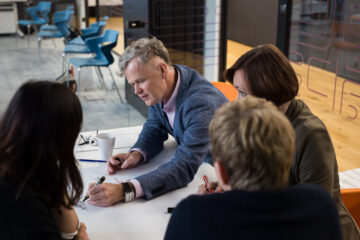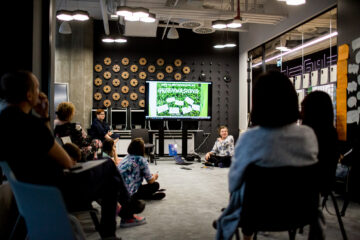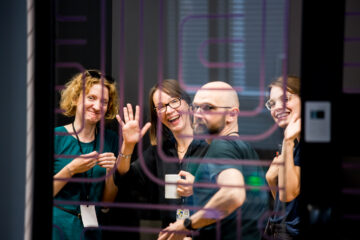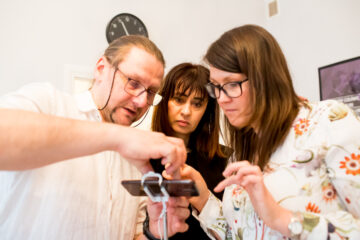EduCoop – Open Education Cooperative
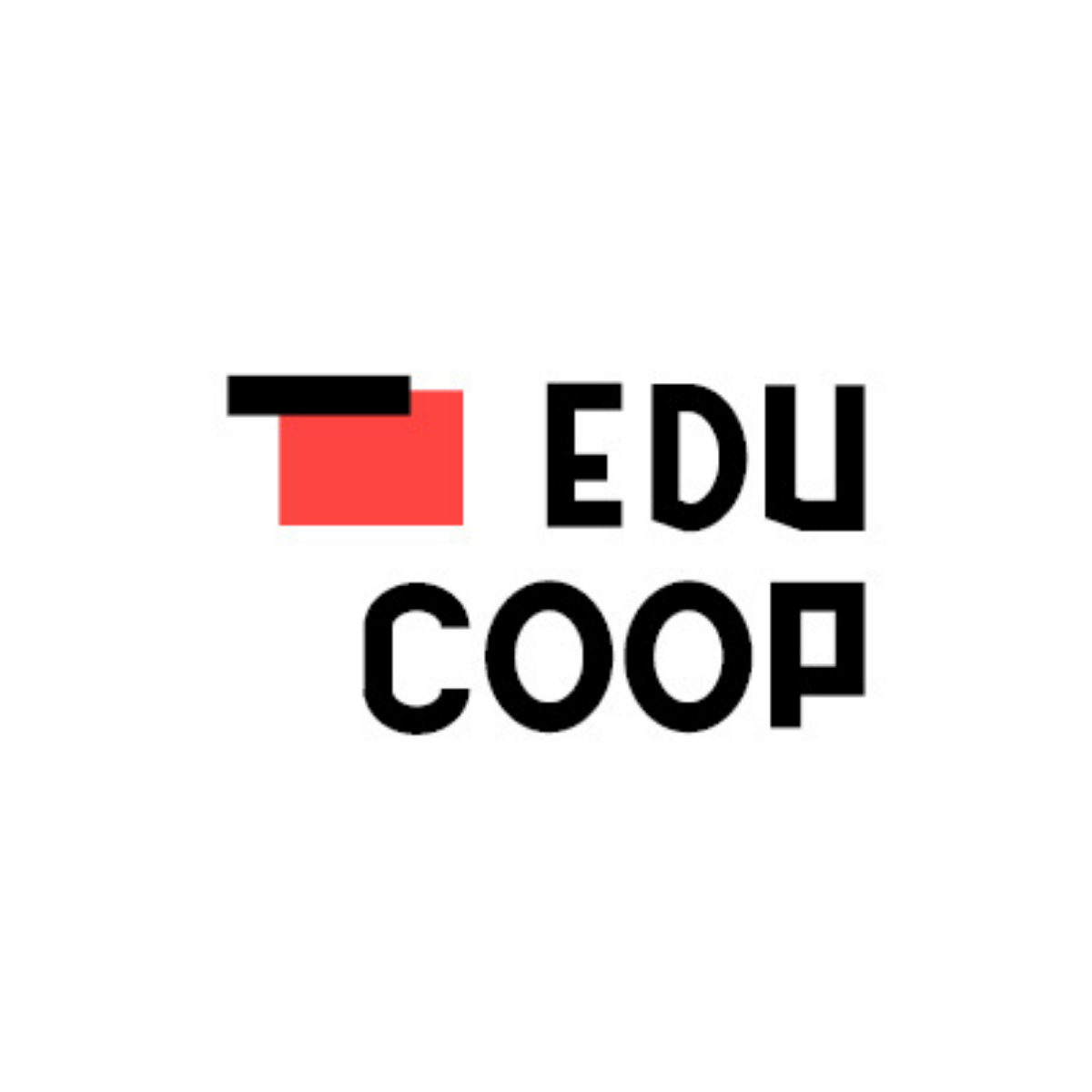
Project team: Aleksandra CzetwertyŇĄska, Katarzyna Werner-Mozolewska, Agnieszka SalamoŇĄczyk
Themes: Open education
EduCoop's activities focus on supporting open education in Polish schools and libraries. We want to restore the spirit of cooperation among teachers, educators and library employees.
We want the participants of our projects to rediscover the value and pleasure of joint creation and learning through experience. We focus on the exchange of knowledge and mutual support. Teaching should be an adventure during which people with diverse worldviews and experiences meet, boldly face reality, think creatively and creatively. Thanks to this, they have space to create creative and high-quality open educational resources.
Why was EduCoop created?
- that teachers and librarians could learn how to work and develop open education
- to create reference open educational resources
- to connect people who think similarly about education, they want cooperation, accessibility and openness in education
History
The Open Education Cooperative project was created 3 years ago (in 2018) for the needs of open education activities conducted for the William and Flora Hewlett Foundation.
At that time, mathematics teachers, tutors and librarians took part. A dozen or so model open resources and two online courses were created.
Around the idea of ‚Äč‚ÄčSpoŇāEd there is a group of teachers – EduCoop Leaders.
Method
Below you will find a description of the cycle of work with SpoŇāEd participants. We present it step by step, giving insight into the whole process.
1. For whom
The original version of the project is intended for teachers from various types of schools at every educational stage. However, along with its development, it also went to librarians and educators. The workshop group is no more than 15 people. We work with people who are ready to change their way of teaching, open to new technologies and modern teaching methods. We also care about the atmosphere of cooperation and mutual support. That is why we select participants in a two-stage recruitment process:
- online survey – candidates complete a short survey in which they describe basic information about themselves.
- from the volunteers, we choose a group of teachers who are asked to send us a form in which they describe their experiences and motivations for work. If at this stage we have doubts as to whether a person will be suitable for our group, we conduct an additional telephone conversation.
This recruitment method gives us greater confidence that the participants will be guided by similar values ‚Äč‚Äčand that our project will meet their expectations.
Thanks to this, we can also adapt the workshop program to the individual needs of participants.
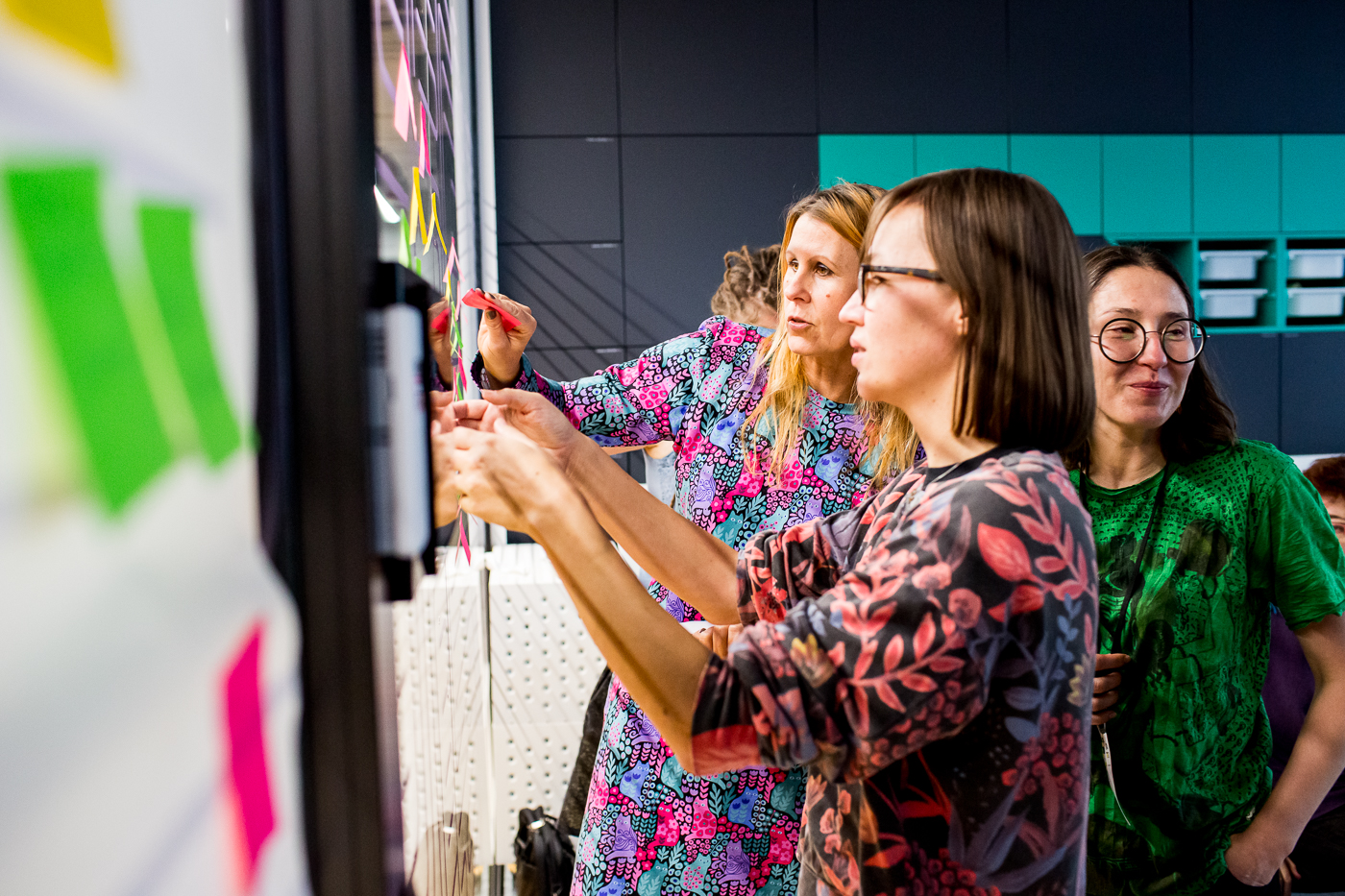
2. Subject
We start work by choosing the current or important topic. This means that we are looking for areas that require support of high quality educational materials, but also those that may interest teachers and be attractive to them
How do we make a decision:
We start the search for a topic with good research. We search the internet for topics that teachers discuss, which are difficult or insufficiently developed for them. Where are we looking for:
- education media
- pages of education organizations
- social media (FB)
We also watch discussions taking place at educational conferences.
Secondly, we talk to teachers, we do research among friendly schools and in the educational environment. What are we looking for:
- themes that are undeveloped – there is a lack of high quality, available to all materials
- topics for which openness will be an important element (e.g., materials should be tailored to the needs of students or teachers lack of knowledge of the selected topic, but they are required to deal with it
- topics that are burning
3. Team
After choosing a topic, we collect a group of people who will work with us. These people change depending on the topic we decide on, and sometimes also because of the participants.
1. Mentors
4 mentors who will support participants throughout the work on open resources. Mentors should be teachers or educators closely related to the selected topic, we also invite specialists from open educational resources and modern technologies to the group of mentors
2. Trainers and experts. Whom to invite to cooperation?
- psychologists and methodologists – help to understand the learning process and others
- substantive experts – specialists in the topics we are working on
- experts using modern technologies and methods in education – film, animation, games
- lawyers supporting the model of openness in education
- Design Thinking specialists in education – they work with teachers at the stage of developing ideas
- accessibility expert – shows you how to make materials meet your accessibility requirements
- graphic designers – help to create materials that will be friendly to other users
Depending on the teachers of what subjects we work, the composition of the experts changes.
4. How do we work?
1. Meetings
Participants take part in four stationary conventions over a period of approximately three months. Each congress is two days of meetings, workshops, lectures and special events. After the first congress, the participants are divided into teams (3-4 people) in which they contribute to their own open educational resource.
2. What is the magic of EduCoop:
The factor of adventure is important during downhill rides. We make sure that participants not only gain new knowledge in practice, but also gain completely new experience.
We are also working on cooperation skills to make it easier for participants to implement projects now and in the future.
We give part of the time to the participants themselves. During this time, they show their favorite tools, previously prepared exercises, materials or completed projects. This element of sharing is extremely important for SpoŇāEd philosophy.
3. Teams:
The teams are selected according to the participants’ preferences, but also using our intuitions, experience and knowledge about given people, how they like to work and how they find themselves in a group and what their priorities are. We try to select people with different skills but with similar interests. In the process of selecting groups, the participants themselves are the first to participate, followed by mentors. The groups also have time to get to know each other and make changes to their members if necessary.
5. Meetings program
Meeting 1 – aims at team integration and inspiration. During this time we show various methods and tools, we try to show participants a range of possibilities. At this congress, participants also share their first ideas for creating their own resources. We learn what topics from the selected area they are interested in and for the first time we try on participants to create teams.
Meeting 2 – participants start working in their teams, learn about copyright and get information about open resources. They will also learn the principles of design thinking. They make decisions about who is the recipient of their material, what problem they answer and what goal they want to achieve.
Meeting 3 – is most suited to the specific needs of participants from all conventions. We are preparing workshops tailored to the skills needed to create materials. Depending on the projects, these can be workshops on educational video and filmmaking, games in education, sketchnoting, but also body work or group work. It is also a time of intensive work on our own resources.
Meeting 4 – this is work on materials, with the support of graphic designers and resource specialists. It is also the time to present the finished resource and to summarize all four meetings.
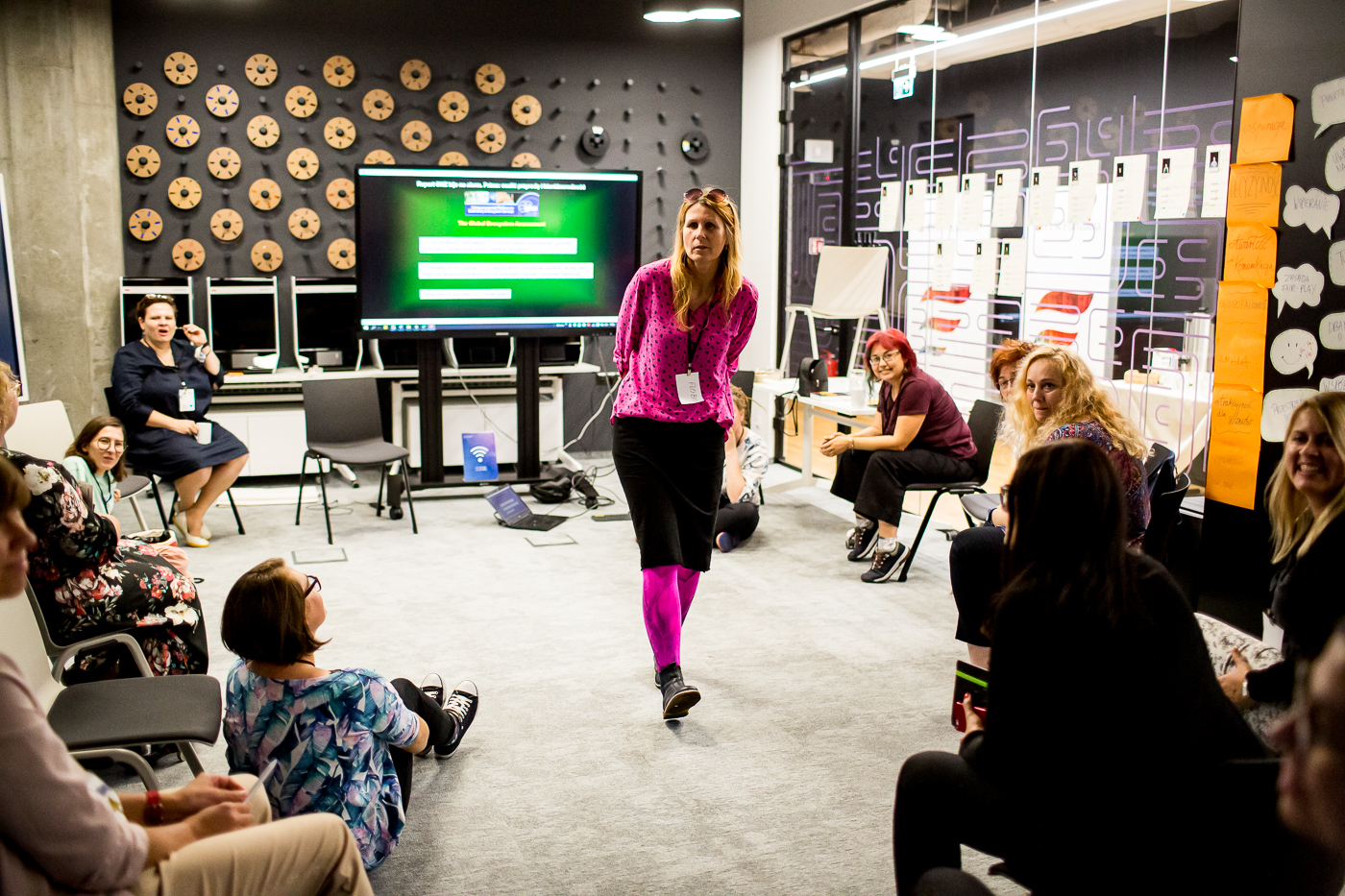
6. Results. Presentation and promotion
The result of each edition of EduCoop are high-quality open educational resources. So far, all groups have successfully completed projects and created their materials.
Materials on various topics, but also using different forms, are available on the same page as the online course “Open education in practice”. Thanks to this they are a great example and inspiration for other teachers. There you can find websites, educational posters and videos as well as downloadable text documents.
However, the materials are not just a good example. Participants are also involved in the promotion of materials in social and industry media and in the environment of teachers. So they are actively used by a group of teachers. Some of the materials are also developed after the end of the project.
7. Internet course "Open education in practice"
All the knowledge that we pass on to the project collects an online course that contains all the most important information about the idea of ‚Äč‚Äčopen education and the Open Education Cooperative itself. You can learn about open educational resources, learn more about copyright in education and creative commons licenses, and look at various educational methods and tools supporting oze. There is also information about placing and promoting resources. Therefore, if only teachers need basic information to recall or systematize their knowledge, we invite you to take the course.
8. EduCoop Leaders
Because a good project is one in which real relationships are established and in which one can develop, a network of leaders operates within EduCoop. They form their own groups that support, organize their meetings and events. They tell why openness is important and how to implement it in schools or community centers. They are an inspiration and support for other teachers.
Teachers associated around EduCoop, in fact, implement their own projects, thanks to their unique ideas and willingness to work, but we are lucky that we infected them while participating in the project with our values or encouraged to talk about them louder and clearer. Once a year, if the situation allows, we try to meet among the teachers of EduCoop. At the congress of leaders, we discuss new ideas, exchange experiences and plan the future.
Sponsors
The project is carried out with the financial support of The William and Flora Hewlett Foundation and Open Society Foundations.
